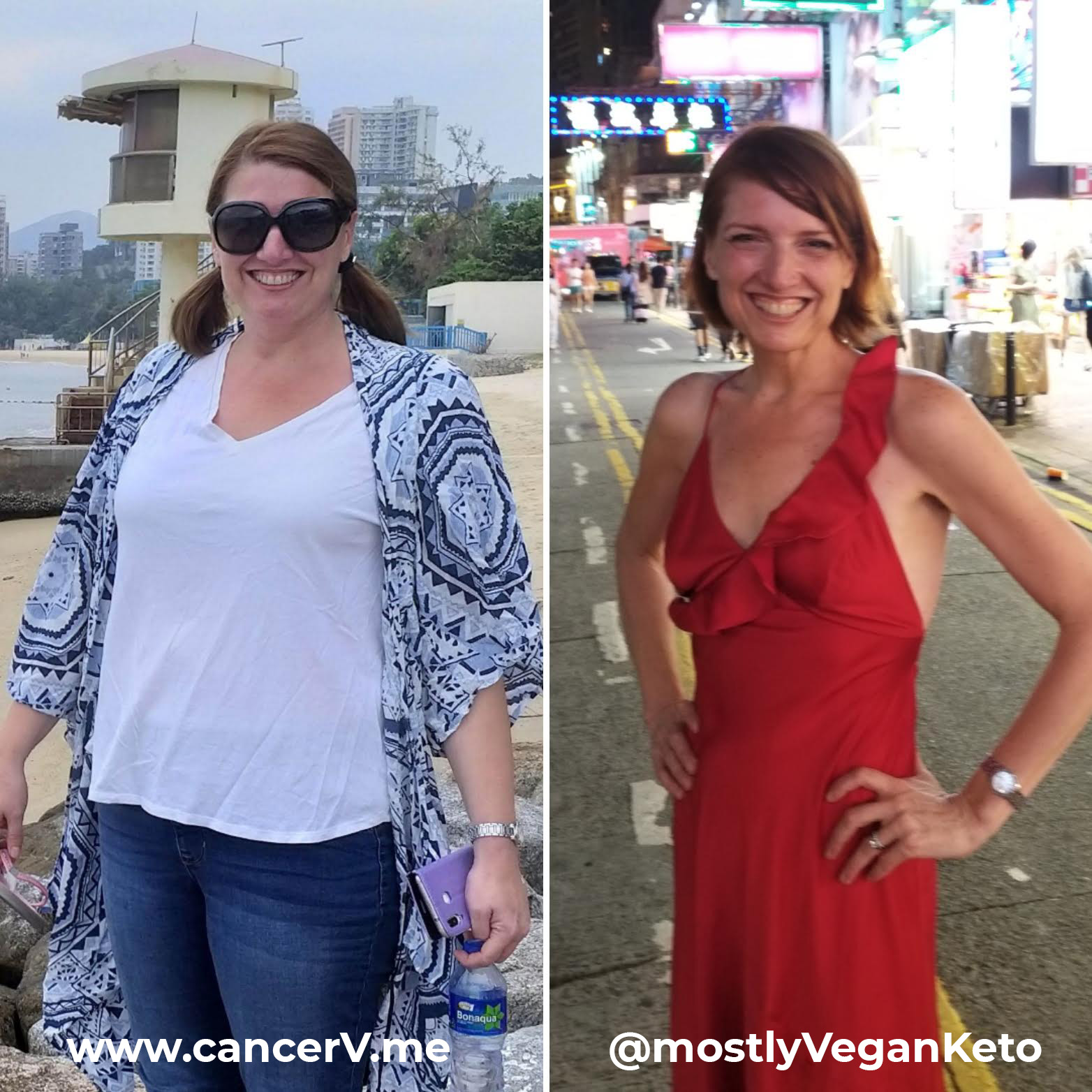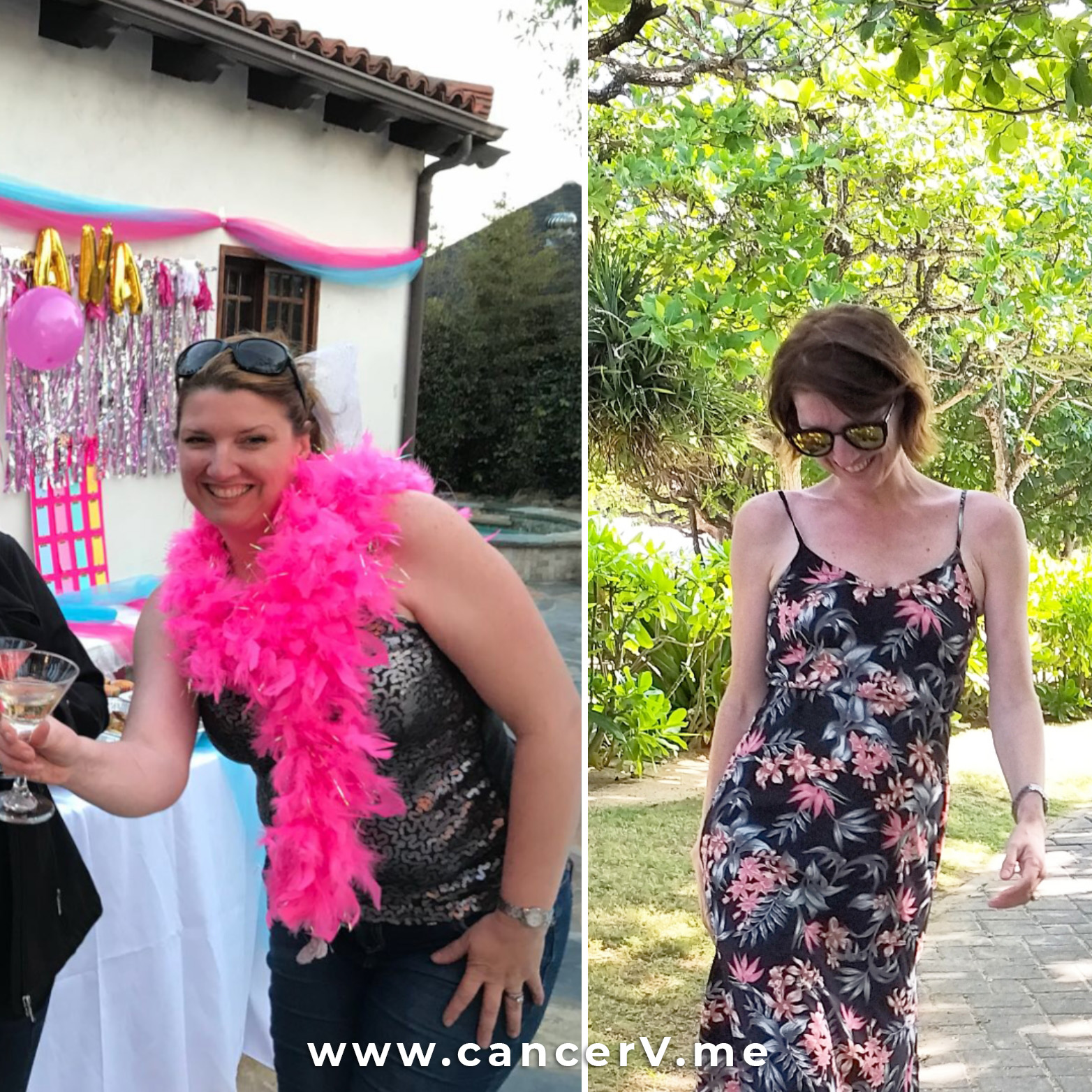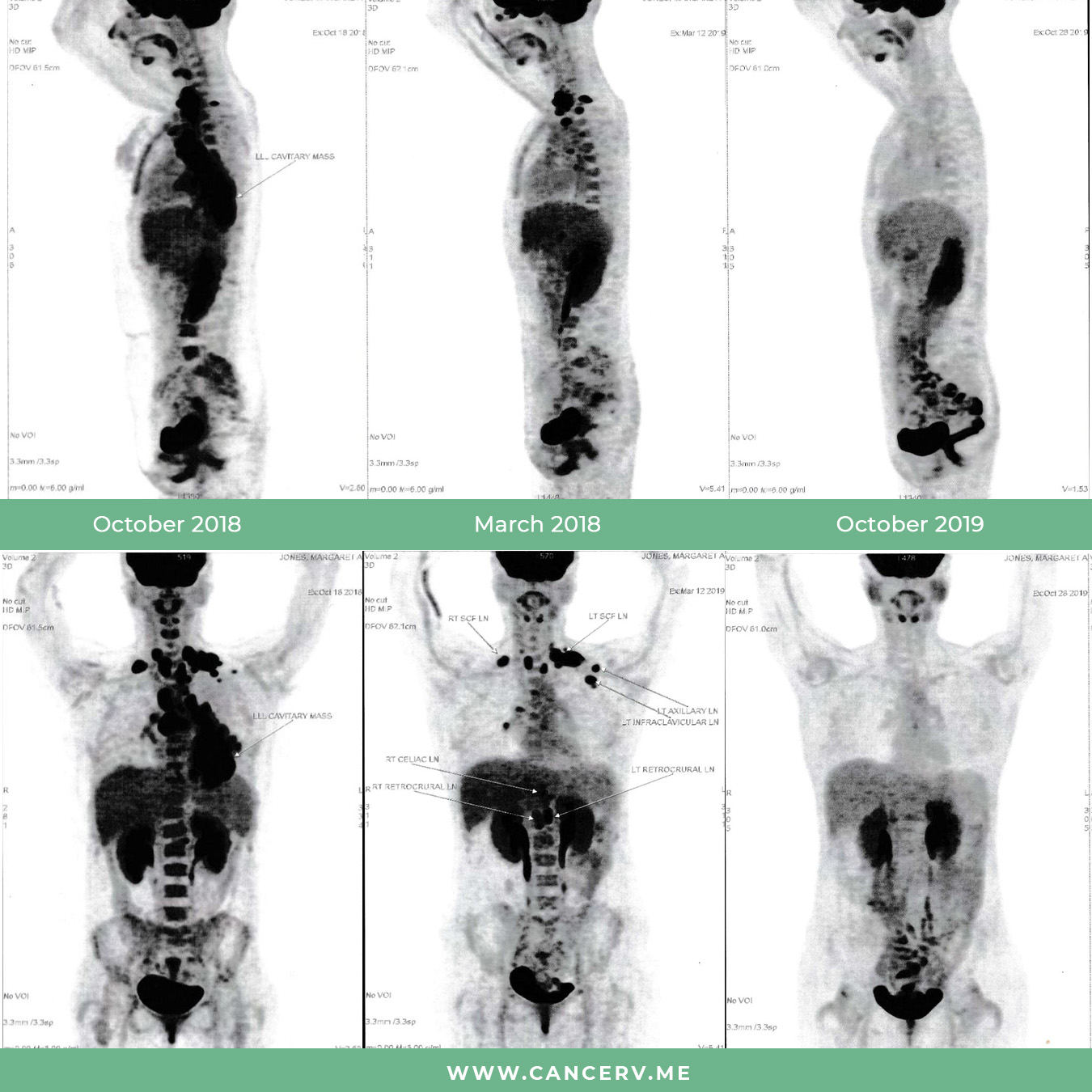The week before I turned 40, my husband and I boarded a one-way flight from our comfortable home in Los Angeles to Hong Kong. We’d never been to Hong Kong – we’d never even been to Asia – but we were ready for a new adventure.
Exactly one month later, I was diagnosed with terminal lung cancer spread to the eye, brain, and over a dozen lymph nodes throughout my chest, followed quickly by liver and abdomen. Needless to say, this was not the adventure we were looking for.
The prognosis for lung cancer that’s spread to the brain is not good. Median survival time with conventional treatment is six to eight months. The five year survival rate rounds to 0%. As a relatively young non-smoker with no family history, my diagnosis was, well, surprising.
It shouldn’t have been.
I like to say that cancer is a messenger. One bearing a strongly worded letter from your body that something has gone very wrong. I’d been ignoring that message – and my body – for a long time.
In the years before my diagnosis I was overwhelmed by stress from my corporate executive job and being our family’s only income earner. The move across the world was, in many ways, an attempt to escape to a less stressful job with fewer expectations. Until that dream arrived, my primary stress management technique was a bottle of Sauvignon Blanc every night to tide me over until weekend cocktails. Even though I ate a healthy diet according to “Standard American Diet” principles, I rarely exercised more than my wine arm, was borderline obese and riddled with inflammation.
Cancer is a messenger and it took a terminal diagnosis before I finally got the message to prioritize myself and my health.

The weekend after my diagnosis I started my first therapeutic water fast. When I ate again it was with the commitment that I would only put food in my body that was as healing as medicine – in addition, of course, to my actual medicine. Within six months of what became a whole foods plant-based, ketogenic diet, I’d lost over 50 pounds of fat and achieved a healthy weight for the first time since early childhood.
As I learned to understand the relationship between stress, inflammation, and cancer, I took an eight-week mindfulness-based stress reduction course and fell in love with yoga, meditation and mindfulness. These tools aided me not only in developing a stronger, more loving relationship with my body but with my mind, emotions and spirit as well. In fact, my deepening practice taught me there was no distinction.
At the time I was diagnosed I was dying. I was on supplementary oxygen and couldn’t lay down because of the cancerous fluid filling my lungs. I was mostly blind in my right eye and confused by the triple whammy of multiple brain tumors, chemo and brain radiation.
Within a year, I found myself in the best health of my life – except for that whole terminal cancer thing, of course. I was back at work full time, taking long hikes on weekends and yoga classes in the evening. My relationship with my husband and family was stronger than it had ever been. I was a kinder, more compassionate person. I rewarded myself with yoga and massages instead of food and alcohol. It was a far cry from my old lifestyle but I was so much happier.
It wasn’t long before I had to admit that terminal cancer was the best thing that ever happened to me.

One year after my diagnosis, I have no evidence of active disease. While the tumors are still in my body, the cancer is quiet for now. This period of remission is a blessing that most cancer survivors don’t get to enjoy. For me, it’s made even sweeter by all I’ve learned.
I will die. Mostly likely from this cancer (although the way they drive in Hong Kong you can never be sure) and most likely young. Before then, I will have lived more richly and experienced more deeply than I ever would have before cancer.
Conventional medicine saved my life in those early days but my lifestyle changes gave me a whole new life. .

For all that it’s cost and will cost, I’m profoundly grateful for my cancer, my body’s last, desperate distress call. Nothing short of a terminal diagnosis would have forced me to reevaluate my lifestyle and finally prioritize myself, my health, and my spirituality.
I’m now working to make sure that others don’t wait for the ultimate messenger before listening to their body. We all need to prioritize ourselves like our lives depend on it. They do.


